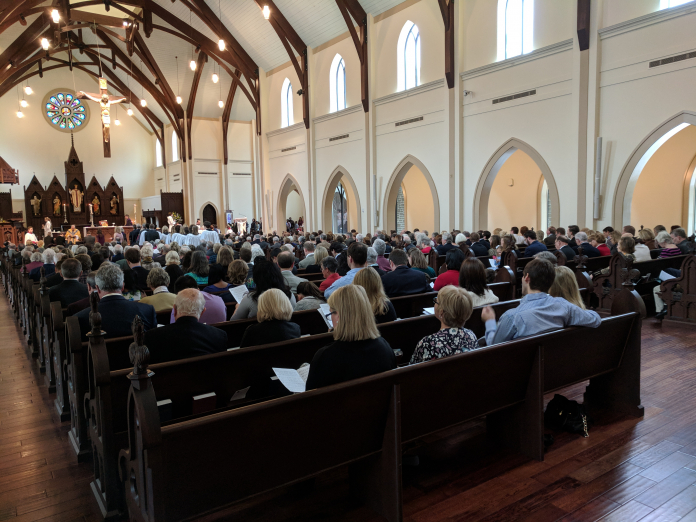While a few Tallahassee area houses of worship plan to hold services this weekend, most are now connecting to their congregations online.
Father Dave Killeen, rector of St. Johns Episcopal Church, said his parish jumped into the online realm early on.
“We have done live stream services over multiple platforms for the past month or so on Sundays and that has been deeply appreciated by our parish members. And I have to say it is challenging, because you have to rethink how you have to do church and worship.”
Up Thomasville Road at St. Peter’s Anglican Cathedral, Communications Administrator Bryan Schultz concurred that digital outreach has also replaced physical person-to-person contact.
“We’ve been reaching out with regular email updates from the archbishop. We’ve been utilizing YouTube and Facebook to livestream our services. And we’ve also been using other social media platforms – Instagram and Facebook – to offer daily encouraging videos as we can.”
For Jewish congregations, transitioning from in-person to online liturgy has a special challenge, noted Temple Israel Rabbi Michael Shields.
“There’s a requirement of having 10 jews to pray many of the prayers. And so not having that quorum in the traditional way is a challenge. But as we’re in the progressive wing of Judaism the ability to use technology to affirm that we do have that quorum, we can interact with one another and support one another with the same vigor of spirit as we did before.”
But not everyone has access to – or is comfortable with – that technology. So St. John’s Father Killeen explained accomodations are made.
“We’ve done so by producing a special printed booklet, ‘Journey Through Holy Week at Home.’ This gives individuals and families who don’t necessarily want to engage with the technology the opportunity to worship and have a meaningful experience.”
St. Peter’s Bryan Schultz admitted the need to provide that experience is perhaps more important now than ever.
“Holy Week is one of the richest times of the year and truly the crux of the Christian faith. So we’re trying to keep up with the typical traditions as much as we can.”
For those in the Jewish faith tradition, the 7-day of Passover is perhaps the most widely celebrated religious festivals. Temple Israel Rabbi Michael Shields believed the new way of celebration hasn’t tarnished his congregation’s observance.
“They have adjusted in their skill set to be able to attend worship, to be able to reach out to people in the congregation and so in some ways it’s brought people closer together.”
Will the present necessity of worshipping online mean lasting changes for religious practice? St. John’s Dave Killeen thought it will have an impact.
“The virtual opportunities will never replace what St. John’s offers Sunday to Sunday. I do think what you’ll see is it will be a strong complement to the in-person ministries that St. John’s will always offer.”
St. Peter’s Bryon Schultz believed there could be a strengthening of devotion.
“Even though we’re not gathering together, we are still together. So I think as terrible as the current situation is, I think there could be a possible good that comes out of it and that is realizing our connection with the church on more than a physical level.”
And Temple Israel’s Rabbi Shields also hoped the present imperative will bring growth and a deeper faith connection.
“Some of us have taken for granted the opportunity to gather, to be present for one another and this will allow us to sharpen that intentionality going forward and God willing, sooner rather than later, we’ll actually be able to gather in person. But will we bring that intentionality of purpose and relationship to that new existence? I really think so and think that will be true and hope that it will be.”
9(MDA4MzU1MzUzMDEzMTkyMzAwMzY5MjY1Mw004))
9(MDA4MzU1MzUzMDEzMTkyMzAwMzY5MjY1Mw004))



